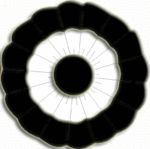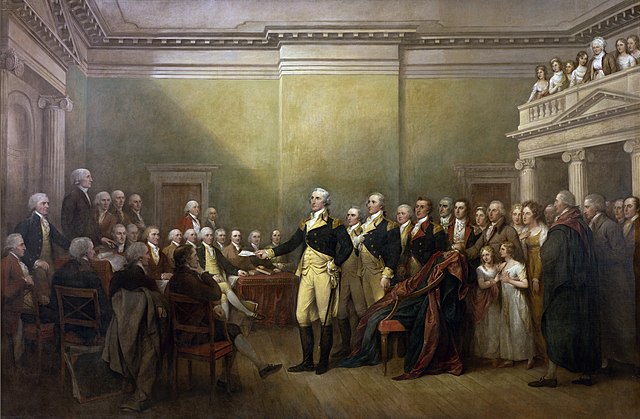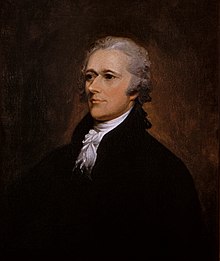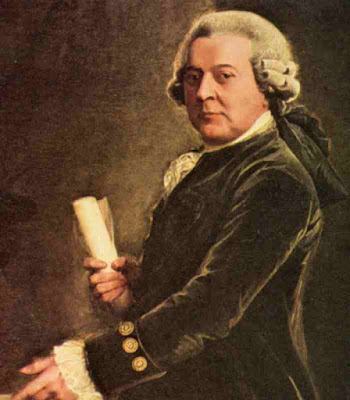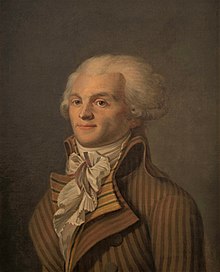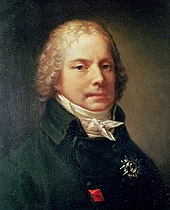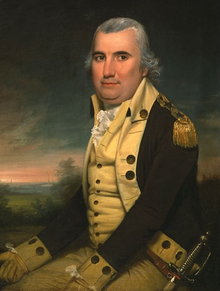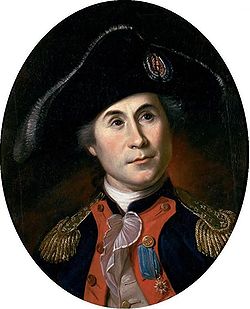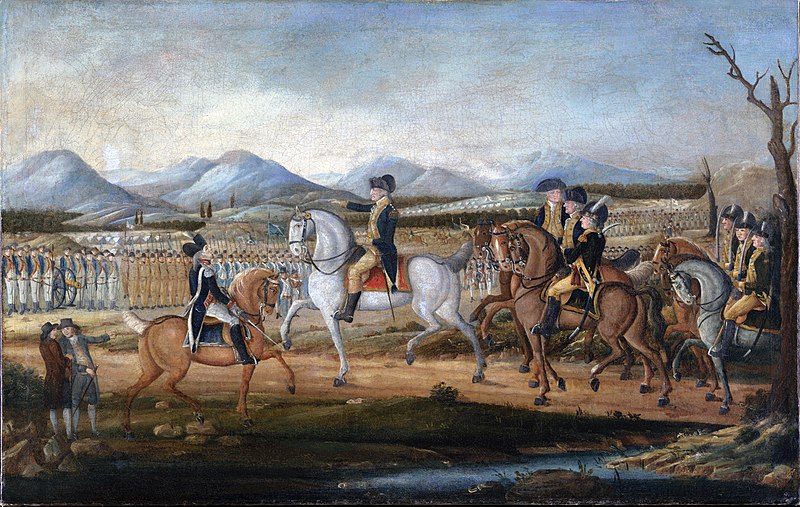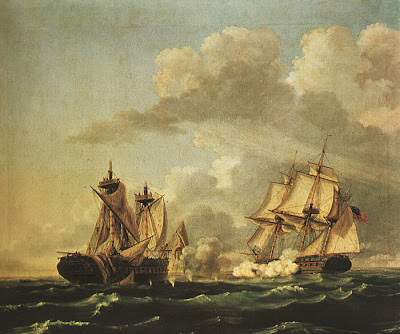President Washington's masterful taping-together of the states while following the Articles of Confederation and Perpetual Union was emblematic of the man's personal strength of character, mental fortitude, and extremely able political skills. Other Presidents of the United States in Congress Assembled had preceded him, but none had been given so much power to consolidate the nation's strength. Washington had gotten all of the Thirteen Colonies to agree with the Articles, and had served two terms. When he stepped down after completing the second four-year term, he was visibly aged. He claimed that, while he served to protect the Articles, they simply were a poor excuse for something such a large government should operate on. He also claimed that "the States will walk all over future presidents. I pity the men who get my position. God bless them." The Good General also worried that future presidents might find a way to abuse their power, which was one reason why he stepped down after his second term, hoping to set an example to those who would follow.
The man who was eager to get into Washington's seat of power was none other than one of the men whose political maneuvering had prevented the adoption of a document stronger than the Articles: John Adams. He had very little in common with Washington when he served as his vice president; another of Washington's ideas was to have presidents and vice presidents be from opposing parties or ideologies. Adams, however, wasn't about to pick Thomas Jefferson, the writer of the Declaration of Independence. Many were avidly campaigning for Jefferson to get the job, but Adams would have none of it. The two men simply did not get along. Washington was accommodating and listened to what Adams had to say. Jefferson, to Adams, was a self-righteous Anti-Federalist and had come close to screaming in Adams' face when the Federalists blocked the request from Washington for a new "Constitution of the States." Adams and his men knew that if the Articles went down, so would they, and their dreams for a strong centralized government would be over.
So, when Alexander Hamilton was picked by Adams as his vice president, it came as little surprise to most. Hamilton was a quasi-monarchist who had advocated Washington become an American King years before. Loved by some, hated by many, Hamilton was a target for severe political attack, but the Federalists were determined to pull him and Adams over the finish line... by whatever means necessary.
The Federalists outright bribed the Congressmen to get votes. When Jefferson requested that an amendment be made to the Articles allowing "free and fair elections by the people of these States," the Federalists had difficulty taking him seriously. Surely, they thought, putting the right to vote for who would be President in the hands of the uneducated mobs was a pure, terrible, folly, and all manner of crackpots and lunatics could win. Then, oily Hamilton arrived at a new idea. A very, very corrupt one. But it was for "the Good of the Union."
Fraunces Tavern, home of the 1796 Federalist Convention
The idea was to allow the Jeffersonians to go through with amending the Articles. Then, Federalists would stuff the ballots for Adams to keep "those lunatics Jefferson and Madison" from attaining power. Adams and a small group of elite Federalists, including Hamilton, Thomas and Charles Cotesworth Pinckney, and Rufus King, gathered in Fraunces Tavern, in the adopted Federalist capital of New York City, for a mini-convention. In secret, the men discussed their "ingenious" plans over some ale, and layed out the plot. Hamilton took charge, with Adams being reluctant at first, being somewhat honest even if he was power-hungry. A few others resisted as well. Hamilton eventually dragged them to accept it in the name of the "public good." The Federalists were what America needed, he proclaimed, and the Anti-Federalists would bring about the "promiscuity of the States." An ironic line, considering Hamilton himself was the bastard son of two loose persons in the Caribbean colonies. More plans were drawn up to prevent any more Federalists than necessary from learning of the plot.
Strong government was their motto among themselves, even though they knew it would not be popular among the people to phrase it that way. So, they promised whatever the people wanted, knowing it wouldn't matter. Benjamin Franklin finished assisting the Congress draft the amendment that enabled elections and then, loosing his balance and falling down the steps in front of Independence Hall, died two days later.
Adams liked the Old Man as well as anyone, but Franklin had sided with the independents like Washington, and more than not drifted toward the Anti-Federalists. Plus, the last thing Adams and Hamilton needed was for Franklin to use his genius to figure out the ballot-stuffing and giving some wise quip, bringing the entire Federalist Party into the gutter. Yes, Franklin's death was quite convenient for them, no matter how sad.
When it came time for the election, only white males over the age of twenty were allowed to vote. When the votes were being counted at their respective state capitols, the Federalists went to work. Stuffing, erasing, re-writing, and voting multiple times. It was a dark day of cheating, bribery, and outright corruption on an incredible scale. The cheating was accompanied by an unimaginable amount of anti-Jefferson propaganda, accusing the Declaration of Independence author of outright atheism.
Adams and Hamilton knew, though, that if too much of the vote percentage went for them, people would become suspicious. So, they had dispatched orders to make sure it wasn't a
ridiculous victory. 60, 65, or 70 percent of the vote would seem believable but strong. Yes, around that number would put the Federalists in the "we have a mandate from The People to accomplish our agenda" zone. Thus, three weeks later, when all was said and done, John Adams became the Seventeenth President of the United States in Congress Assembled, and Hamilton became the Vice President of the same.
List of Presidents of the United States in Congress Assembled:
- Peyton Randolph (September 5, 1774 - October 22, 1774) Virginia
- Henry Middleton (October 22, 1774 - October 26, 1774) S. Carolina
- Peyton Randolph (May 10, 1775 - May 24, 1775) Virginia
- John Hancock (May 24, 1775 - October 29, 1777) Mass.
- Henry Laurens (November 1, 1777 - December 9, 1778) S. Carolina
- John Jay (December 10, 1778 - September 28, 1779) New York
- Samuel Huntington (September 28, 1779 - July 10, 1781) Connecticut
- Thomas McKean (July 10, 1781 - November 5, 1781) Delaware
- John Hanson (November 5, 1781 - November 4, 1782) Maryland
- Elias Boudinot (November 4, 1782 - November 3, 1783) New Jersey
- Thomas Mifflin (November 3, 1783 - June 3, 1784) Pennsylvania
- Richard Henry Lee (November 30, 1784 - November 4, 1785) Virginia
- John Hancock (November 23, 1785 - June 5, 1786) Massachusetts
- Nathaniel Gorham (June 6, 1786 - November 3, 1786) Massachusetts
- Arthur St. Claire (February 2, 1787 - November 4, 1787) Pennsylvania
- Cyrus Griffin (January 22, 1788 - November 15, 1788) Virginia
- New Amendment to Articles allows four year terms with no limit on how many times someone may run
- George Washington (April 30, 1789 - March 4, 1797) Virginia
- New Amendment to Articles allows election by popular vote
- John Adams (March 4, 1797 - ) Massachusetts
Jefferson had suspicions, but was not willing to accuse without absolute proof. They had a few squealers who mentioned something about the Federalists running a cheating ring, but when several Democratic-Republicans were also caught with their hands in the cookie jar, Jefferson and Madison conceded defeat and vowed to run the next time. They had no choice but to be quiet about the rumors or else drag their own party down, too.
With Adams and Hamilton in the Presidential Mansion, the Federalists entered their own metaphorical high castle on a hill and started, after a few months, to drift farther and farther away from political reality. Before long, everything was an elected position, and cheating had the Federalists running victory laps all around Philadelphia, the national capital.
And that leads to one of the first acts the Federalist government ordered, that the national capital and capitol be moved to New York City, the heart of the Federalist Party.
After a year, beginning around June of 1798, the citizens began to feel openly resentful of Adams and Hamilton's "pseudo-monarchy." Most longed for the days of the apolitical Washington, and his patriotic policies. The Federalists were even starting to take away some basic rights, like when a newspaper editor in South Carolina, Joshamee Worthington, wrote that Adams should be removed from office and that Hamilton was a "pointy-nosed lying bastard-prince," the South Carolina state militia raided his offices and arrested him, holding him for two weeks in a moldy prison until public outcry demanded his release.
Things continued escalating, and the Federalists were thrown into a panic in New York.
The first international crisis to hit Adams was something that had been going on for a decade in Europe and that Washington had tried to distance himself from as far as possible. The French Revolution had toppled King Louis XVI and beheaded him and his family. Europe was engulfed in war as the French tried to imitate their American cousins across the Atlantic, only they added more blood and much, much more beheading. Guilbert du Motier, Marquis de Lafayette, French Hero of the War for Independence, had taken it upon himself to be the George Washington of France. He seemed, however, to go off track fairly soon, and after 1790 and the Feast of the Federation (which was the establishment of the constitutional monarchy), lost power to men much more radical men, like Maximilien François Marie Isidore de Robespierre, who turned around and beheaded Louis.
Marquis de Lafayette
Robespierre
After Robespierre's own execution, the Committee of Public Safety which had long governed France lost power, and was succeeded by the less-radical Directory. Less-radical or not, the American public loathed the French Republicans and Washington and Adams' diplomats told them that the war debts that were owed were owed to the French Crown, not to the Directory. France became inflamed, and what followed was known as the RST Affair.
The RST Affair took its name from the letters R, S, and T, which were used instead of the French ambassadors' real names in documents released by Adams' administration. In the documents, the oily and infamous Monsieur Talleyrand, French Foreign Minister, demanded that America stop following the Madison Treaty of 1794, which made Great Britain America's chief trading partner. France was furious over the treaty, and as French and British ships seized trading vessels dealing with their enemies, 300 American ships were captured or sunk and their crews held for ransom or pressed into service. Talleyrand demanded not only money to pay that ransom, but also money to even begin bargaining in the first place. Adams, thinking the same way as the public, was insulted, and refused to kowtow to the Directory.
Adams was willing to accept the imprisonment of the sailors, thanks to Hamilton discussing it with him. Hamilton convinced Adams that the sailors, as neutrals, would remain in prison until the next French government took power and tried to get in the USA's good graces ("and they always do").
However, not agreeing to play Talleyrand's game incensed the Directory even further. On July 4, 1798, off the coast of Florida, the
USS Trenton was sunk and the
USS Charleston was captured by 12 French Republican Navy warships. The French had killed much of the crews, and among the dead was US Ambassador to France and devout Federalist, Charles Cotesworth Pinckney.
Ambassador C. C. Pinckney
The American public cried out for war, but Adams hesitated. If he declared war, it would likely entail an Anglo-American Alliance, something which made him and many other people uncomfortable, to say the least. Hamilton was not sure what to do, for once, and simply sent the Directory an order to hand over the hostages and the Pinckney Affair would be forgiven.
France refused.
Finally, he and the Congress opened discussions with the British Empire for a possible alliance to punish France. King George III, growing more insane every day, suddenly broke the deal, much to the disdain of his ambassadors. They said if he was sane, he would have agreed, but his insanity did not void his orders. Britain was not going to ally itself to the USA, that was now clear to New York. Adams fumbled day after day as public outcry grew against his bungling of the RST and Pinckney Affairs and his own encroaching on their rights, like his imprisoning of Worthington the newspaperman and several other similar incidents.
Hamilton had a new strategy. If America would be preoccupied fighting off the French, the people would be less inclined to quarrel over "petty politics." Adams retorted by saying the US Army and Navy was almost nonexistent. Hamilton replied simply: "
Then make them exist." Adams retorted again, saying that there were no young officers to lead them after they "are made to exist." Hamilton answered that old Revolutionary War officers could be called out of retirement, and that France's star general, Napoleone di Buonaparte, was entrenched in Egypt, surrounded by Lord Nelson's British fleet. Hamilton went on, thinking as he spoke, telling Adams that it was now a perfect time to seize Louisiana from the Spanish, who were allied to France by the Treaty of San Ildefonso. Adams couldn't believe what he was hearing... at first. Then, he brought the elderly Washington out of retirement and told him to prepare to invade Louisiana and told Admiral John Paul Jones to ready the "fleet" to combat the French Republican Navy.
Washington and Jones couldn't believe what they were hearing either.
Admiral John Paul Jones
"Grand Marshal of the Armies by Congress Assembled Mustered" -awkward title given to George Washington, show here as he inspects the troops in Georgia
And so, on January 1, 1799, the US government rang in the New Year by declaring war on the Republic of France and the Kingdom of Spain. The Madness had begun.
Thomas Jefferson and his Anti-Federalists said the war was completely and utterly stupid-reprehensibly so-and that Adams had been brainwashed by Hamilton into thinking the tiny USA was a military giant akin to Ancient Rome. As for Hamilton himself, they said he was simply an egotistical incompetent who had lost his mind. Some arrests were made of Jeffersonians for "seditious speech and slander against the President of the United States in Congress Assembled." More outrage followed. Adams just locked himself up in the Presidential Mansion with his advisers and stayed there, far from the public eye. Hamilton continued directing affairs, becoming the real power in the government.
On March 5, the US Army crossed the border into Louisiana, the men eager to fight under the Great Washington, and most expected quick victories. They weren't disappointed when-at what the Americans called the Battle of Alligator Ridge-a "Spanish" force was absolutely dismantled by Washington's "genius." In reality, it had been only a small detachment of scouts, most not even Spanish but Creoles and Indians. Washington marched his men into the mouth of Hell itself at the Battle of Boggy Swamp (March 20), followed by the Battle of Port Richelieu (March 28) (the Battle of Port Richelieu also entailed a minor naval debacle). If the US generals had had any sense, they would have either attempted a landing near New Orleans, which if conquered would have meant the end of Spanish rule, or they could have attacked the sparsely-populated north, which would have eventually resulted in American rule everywhere
but New Orleans (which would enable an easy capture of the city at a later date). Instead, as Jefferson put it, it was an unmitigated military disaster, and Washington said they just needed to "show some gumption. If we do that, Louisiana is ours." 2000 American soldiers had been killed. 4000 Louisiana troops had died, mostly militia, and made the formerly friendly, anti-Spanish Francophone population hate the Americans.
The Battle of Boggy Swamp
The final nail in the Louisiana Invasion coffin came in December, 1799, when Washington was shot and killed by an Indian scout. An ironic death, considering Indian scouts in the French and Indian War had shot his commander and deliberately spared him at Braddock's Defeat. The nation wept bitterly as their hero's casket was marched home and buried at his plantation, Mount Vernon. The Invasion was over, and massacres of several towns by fuming US soldiers exiting the Spanish colony left the Louisianans bitter and wanting revenge.
Meanwhile, Admiral Jones had proven himself a genius... at avoiding sending the pitiful US Navy to the bottom of the drink. A series of naval retreats and then stopping long enough to fire broadsides had harassed the French and saved American ships.
Hamilton was not happy though. He demanded Jones pick an easy target and attack. The Battle of Port Richelieu had just occurred, and the public needed something to cheer about. Protesting, Jones refused to go on a suicide binge. Hamilton had him removed and replaced with the pitiful Admiral Nathanael Butterworth. Butterworth followed orders... and attacked a French fleet south-west of the English Channel and lost half his ships. The US Navy drifted back to New York harbor beaten and bloodied, and it was announced that it wouldn't be a seaworthy fleet in a year. Adams and Hamilton were horrified.
Butterworth's flagship the USS Woodhouse fires on the French Unicorn off the coast of Brest
The American public was furious with the Adams Administration and open calls for impeachment became commonplace in everyday life. Thomas Jefferson's support reached new heights, and James Madison began referring to Hamilton as "Alexander the Ungreat." Napoleone di Buonaparte had, on October 9, returned to France and shortly after set himself up as dictator of the country, and he was not pleased with the nascent Americans being a pain in Marianne's rear.
The election of 1801 was fast approaching, and the Federalists were going to lose in an unimaginable landslide. But they would win thanks to voting fraud, said Hamilton, just like the first time. This time, though, the citizens were suspicious. If Adams won, they'd know he'd cheated. Adams sank into a deep depression, and just before the campaigning season announced to friends he was dropping out to make room for Hamilton and Rufus King to run. Hamilton panicked, and barely convinced him to stay on board, as Hamilton was so unpopular that if he won by any percentage, the people would know it was fraud.
The Madness was about to destroy the country...
"Kill the Bugger!"
-New York mob battle-cry following the fraudulent election of 1801
Willard Crawford leads his militia against the Presidential Mansion
The year of 1801 was a brutal one for the USA. The economy was in the metaphorical toilet, the homeless and jobless numbers exploded, and the French conflict was an undeniable defeat for the country. French and Spanish soldiers were regularly making incursions upon American soil, not on the intent of conquering, for the two European countries had more than enough restless territory on their hands, but to force Adams to agree to a peace. The French were willing to be lenient on the US, as there was no real damage done to them or theirs. The Spanish, still seething over the Louisiana attack, wanted more of a punishment.
The punishment came in the form of economic payments to the Spanish Crown, agreed to at the Second Treaty of Paris, which pushed the US economy further into the blackness of the fiscal abyss. Adams and Hamilton's government was falling apart at the seams, and the civil unrest was already kicking into gear.
The first example of secessionist tendencies came from South Carolina, followed by North Carolina, Georgia, and Vermont. Vermont was made a state in an effort to calm it down, which worked to some degree, but the Southerners kept talking about drawing themselves out of the Imperfect Union, because, they said, every state had the right to do as such. The main leader of the South and North Carolina secessionist movement was Andrew Jackson, a young soldier in the Raleigh Militia. A through-and-through states' right movement supporter, he claimed to have enough clout to pull the two Carolinas out of the USA and form the "Grand Republic of the Carolinas. A possible union with Georgia was also tossed about, making the idea of a "Confederation of the South" popular. Later, Virginia was rumored to be a supporter of pulling out, but it denied it would ever join the "Carolinian rapscallions" in any union. It became a known fact that if Virginia left, it would form its own republic and tear the country apart right down the middle.
Adams felt sick as he saw mobs gather every day in New York City, right outside the Presidential Mansion, and burn him in effigy. Guards blocked all access to his home, but there had been several radicals who had tried to rush the walls. They were met with rifle butts to the face and prison wagons. The tension was so thick it could have been cut with a bayonet.
Then the campaign season started. Sure enough, Thomas Jefferson and James Madison had reformed their tagteam to take Adams and Hamilton down. "This lying scoundrel is nothing but a hermaphroditic tyrant who wants to murder all who oppose him and desecrate our Freedom," said Jefferson's propaganda.
Even Adams' old friend Thomas Paine, now living in France where his new friend Napoleon Bonaparte had offered him a cabinet position, turned against the President of the United States in Congress Assembled, calling him "Louis XVI of North America." "When Adams' Tuileries Palace crumbles about him, he shall see what the people truly think of his
Bourgeoisie ideology."
For all of 1800, the USA was a defeated, crushed, bankrupt country with no way to pay off its debts. The Articles did not allow enough means to raise money to pay off the national debt. It continued to get worse and worse. Outright civil violence popped up in Boston and Philadelphia as several Federalist government officials were seized and lynched by dockworkers. Soldiers were sent in to arrest the perpetrators, and instead of cooperating, the civilians in both cities rioted, ending in 52 soldiers and 83 civilians killed or crippled. Indians on the frontier were growing increasingly bold, and they suddenly seemed to start exclusively targeting federal government homes and territory, and suspicions were rising that state governments had payed the natives off.
Finally, 1801 had arrived. Hamilton's men did the same thing they had done four years before. But instead of only having to change some votes, they discovered almost all the votes were for Jefferson and Madison. A woefully pitiful amount of Adams/Hamilton votes were cast, comprising about 1 to 2 percent of the entire population, most of them Federalist officials. The voting fraud goons had a devil of a time creating enough fake ballots to pull off the win. They did manage to "reelect" the current administration, though, and the unrest exploded.
Allegations of fraud circulated immediately, followed by people saying it
had to be fraud. In Boston, a Federalist election official, Elah McGuffey, was kidnapped and tortured until he told the truth, admitting Adams had cheated his way to power both times.
On May 18, the Congress of the Carolinas was held in Charleston to seek a vote for secession. Overwhelmingly, the individual counties voted to leave the United States, forming the Confederation of the Carolinas, and the delegates from both states then elected Andrew Jackson as Emergency Chancellor. A democratic election would be held as soon as the new nation stabilized and was satisfied the USA would not try to resist them. The frontier territorial disputes between the two states were solved upon union, forming the State of West Carolina, which also joined the Confederation.
Confederation of the Carolinas
Georgia, now cut off in every way from the USA, also formed its own country, the Republic of Georgia. It was quite large, stretching from the Atlantic to the Mississippi. West Florida, which had been a haven for pro-American Louisianans, rebelled against Spain and, with Georgian assistance, formed the West Florida Republic. It took up Georgia's entire coastline on the Gulf of Mexico, but Georgians were allowed to freely come and go into West Florida, making future Georgian annexation almost impossible to avoid.
Finally, an armed militia assaulted the guards at the New York City Presidential Mansion, burning half of it down and causing massive casualties. Willard Crawford, an officer from the Revolution, announced he would lead all rebels willing to fight the next day. Thousands of men showed up and engaged the government bluecoats in New York City itself. Despite an incredible amount of bloodshed and destruction, the rebels seized control of the capital. Adams and Hamilton were captured attempting to flee further north, possibly to British Canada, and were thrown in the Livingston Sugar House, in Manhattan, which had been used to hold 500 prisoners at a time during the War for Independence. Before long, most of the government was locked up in the building. Revanchist mobs gathered outside every day demanding they be executed.
Things were about to wrap up for the history of the United States, and Adams and Hamilton would betray each other before it was over



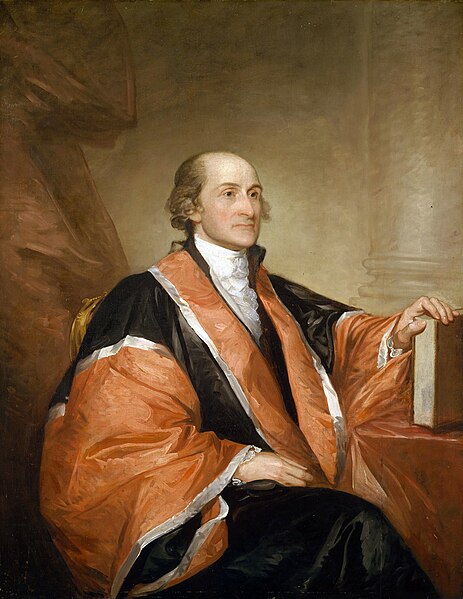
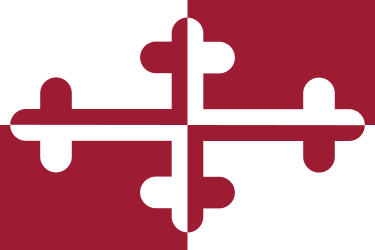
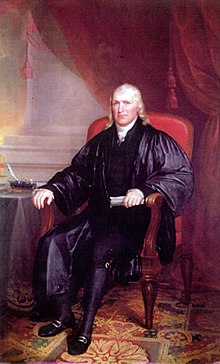

You're pretty handy with those. I'm actually going to update this again, soon. I've only just started writing again.


Did you draw that? That looks awesome. I laughed quite a bit.
In paint program btw. Glad you liked it. I may fix it later thought, only error is capitalization in the title.

